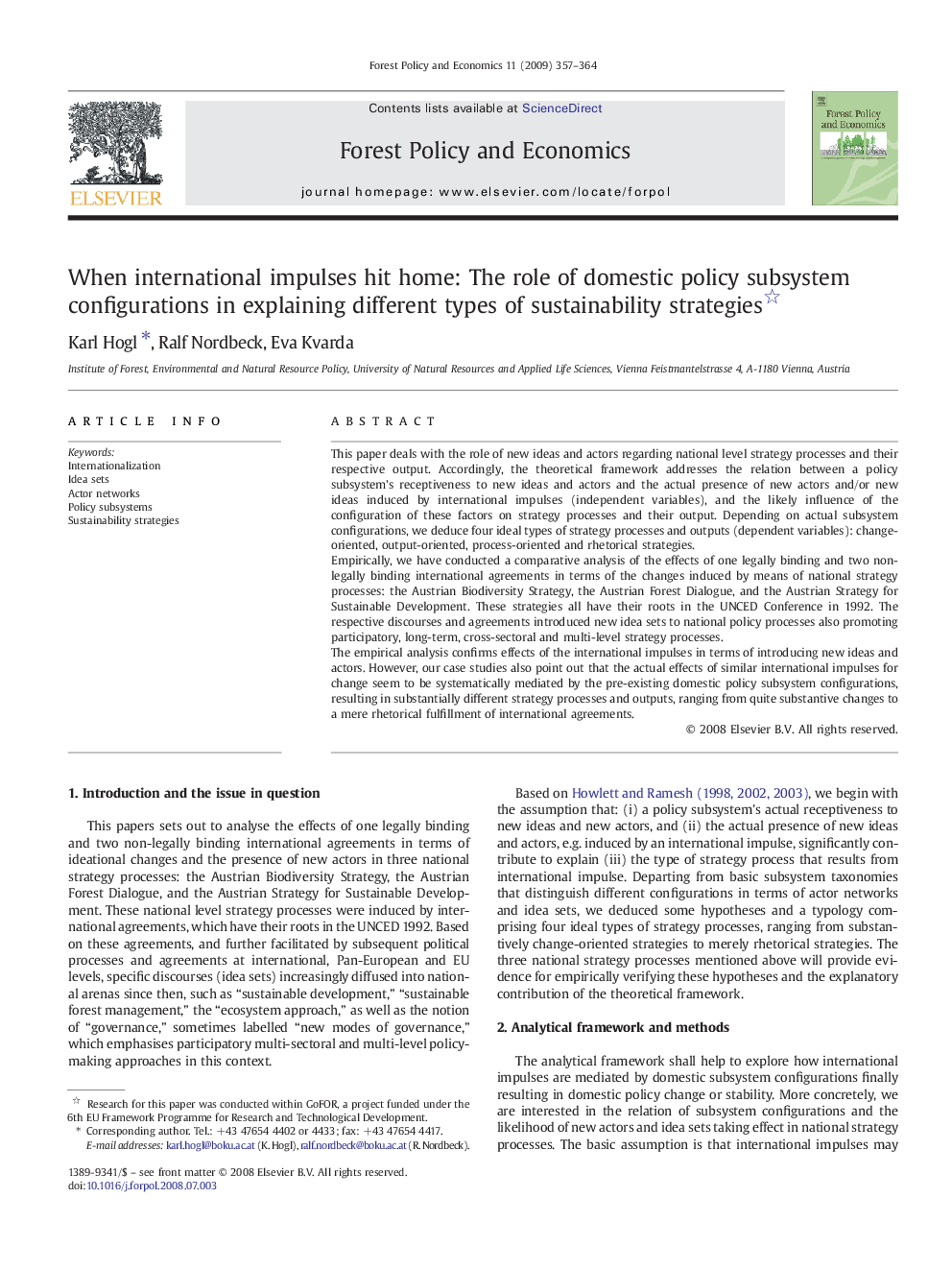| Article ID | Journal | Published Year | Pages | File Type |
|---|---|---|---|---|
| 91287 | Forest Policy and Economics | 2009 | 8 Pages |
This paper deals with the role of new ideas and actors regarding national level strategy processes and their respective output. Accordingly, the theoretical framework addresses the relation between a policy subsystem's receptiveness to new ideas and actors and the actual presence of new actors and/or new ideas induced by international impulses (independent variables), and the likely influence of the configuration of these factors on strategy processes and their output. Depending on actual subsystem configurations, we deduce four ideal types of strategy processes and outputs (dependent variables): change-oriented, output-oriented, process-oriented and rhetorical strategies.Empirically, we have conducted a comparative analysis of the effects of one legally binding and two non-legally binding international agreements in terms of the changes induced by means of national strategy processes: the Austrian Biodiversity Strategy, the Austrian Forest Dialogue, and the Austrian Strategy for Sustainable Development. These strategies all have their roots in the UNCED Conference in 1992. The respective discourses and agreements introduced new idea sets to national policy processes also promoting participatory, long-term, cross-sectoral and multi-level strategy processes.The empirical analysis confirms effects of the international impulses in terms of introducing new ideas and actors. However, our case studies also point out that the actual effects of similar international impulses for change seem to be systematically mediated by the pre-existing domestic policy subsystem configurations, resulting in substantially different strategy processes and outputs, ranging from quite substantive changes to a mere rhetorical fulfillment of international agreements.
